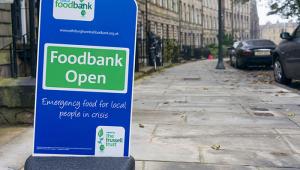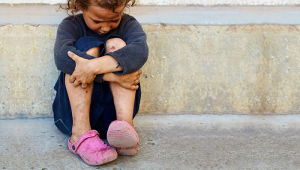The Joseph Rowntree Foundation says social security policies and practices can lead to “destitution by design” because of gaps, flaws and choices that leave people without essentials.
Chief executive Campbell Robb said: “Many of us rely on public services such as social security when hit with unexpected circumstances like job loss, relationship breakdown or ill health.
“Yet actions by government, local authorities and utility companies are leading to ‘destitution by design’: forcing people into a corner when they are penniless and have nowhere to turn. This is shameful.”
A report published by the foundation yesterday found that 1,550,000 people were in destitution at some point in 2017, including 365,000 children.
It said factors tipping people into poverty were low benefit levels, delays in benefit payments, uncoordinated debt recovery practices by public authorities, pressures caused by poor health or disability, and the high costs of housing and other essentials.
The foundation called on the government to end the freeze on working-age benefits so they keep up with the cost of essentials – such as shelter, food, heating, lighting, clothing and basic toiletries.
It also said ministers should change the use of universal credit sanctions and review the amount of debt that can be taken from those on benefits.
Lead author of the report, Suzanne Fitzpatrick, who is the director of the Institute for Social Policy, Housing and Equalities Research at Heriot-Watt University, said: “The apparent higher levels of sanctions in universal credit are a sharp warning that destitution could increase again as the new benefit expands in the coming years.
“Rebooting and improving the funding for local welfare assistance in England is one element of a package to provide the crisis support that people in destitution need.”
The report noted that levels of destitution declined by about 25% between 2015 and 2017 – and a reduction in benefit sanctions was a significant factor.
It defined people as destitute if they or their children lacked two or more bare essentials – shelter, food, heating, lighting, clothing and toiletries – over the past month because they could not afford them, or their income was less than £10 per day for one person.











